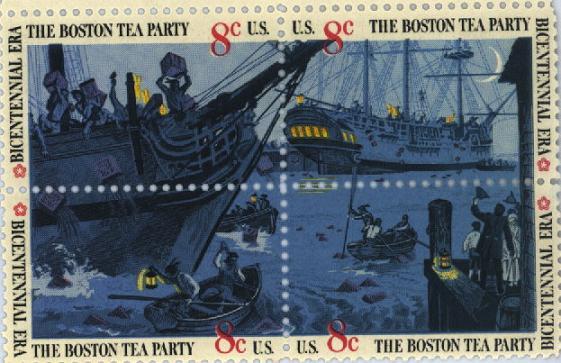The National Tea Party Convention
The first National Tea Party Convention was held last week in Nashville, Tennessee. While the convention was held for the purpose of espousing the principles upon which the Tea Party movement was founded, the convention fell far short of embracing the real change needed to assure America’s dominance in the twenty-first century. While a commitment to a smaller federal government, lower taxes, and stronger national defense are all positive steps towards assuring the greatness of America in the future, the commitments are only cures to the symptoms of the disease which plagues America. The fundamental problem with the American political system deals with the structure of our government which has been bastardized from its original form by the progressive and populist movements of the last century.
The problem with the American political system is that we, as citizens, now live in a democracy and no longer the federalized republic created by the drafters of our constitution. Because of this change in form, the nation is starting to develop the problems long associated with democracies. In his work The Politics, Aristotle warns of the dangers of democracies versus the virtues of the polity or the republic. As so blatantly summarized by Hugh Henry Brackenridge in Modern Chivalry, democracies lend themselves to become mobacraies, where the whims of the many rule over the individual rights of the few. Fortunately, our founding fathers understood this danger to personal liberty by the majority and created a form of government to combat it.
As explained by Madison, Hamilton, and Jay in the Federalist Papers, the system of government created by our constitution combats the dangers of democracies in three ways. First, at the local level, our constitutional forms of governments pit the individual desires of each faction of the American citizenry against one another thereby assuring no one faction can at anytime become so dominate so as to threaten our liberty. While at times numerous factions will ban together to create a majority, the differing needs of each separate faction of citizenry will cause such alliance to be fleeting in nature. Secondly, each sovereign state acts as its own faction assuring the power of the federal government never becomes so absolute so as to impose tyranny upon the minority. Finally, the sovereign states grant the federal government certain enumerated powers for the common good of all the sovereign states while expressly reserving all other powers to the states. This final protection has come to be known as federalism. It is in this latter regard which as a nation we have failed as evidenced by our current form of government.
The reasons for this failure are the degradation of the states through the usurpation of their sovereign power by the federal government, especially the federal judiciary, and the ever increasing subrogation of our founding principles with the dogma of liberal elitism yielding an uneducated and complacent citizenry. In order to correct the illness which plagues our nation, we must do more than lower taxes or cut spending. We must resurrect the wall of federalism by restoring to the states their sovereign power so they may act as checks against the power of the federal government. Only in this way can we insure the whims of the majority will not affect the rights of the minority.
For instance, in the current health care debate now raging in Washington, the federal government is attempting to impose upon all citizens a single-payer, socialist style government health care program. The reason the federal government can impose such a program on all the citizenry is because the barriers set up by the original constitution, as framed by our founders, have been removed thus allowing those in power to impose their whims upon all regardless of the state in which the citizen lives. Contrast this centralized power to the most egregious and abhorrent use of state power, slavery. Even at its pinnacle, the power of the few slave states to impose their will on free states was non-existent. Furthermore, and probably more important, when the federal government attempted to regulate which states could and could not own slaves through the Missouri Compromise, the Supreme Court of the United States struck down the law as an unconstitutional overreach of federal power. Unfortunately, this is no longer the case. Today, the policies of some states, such as the policies towards gay marriage or universal health care, are being forced upon all states regardless of the state citizenry’s desires. It is this exact problem, which we must correct; otherwise, any change in the policies of the federal government will only be temporary and undone by the next round of liberals to take power in Washington.
While some suggest methods for restoring the correct balance of federal power, such as impeaching activist judges or repealing the Seventeenth Amendment, I will not suggest a method by which to restore our nation to a federalized republic rather leaving such feats to those more tactile than I. In conclusion, I am reminded of a story about the founding of our nation. Upon emerging from the Constitutional Convention which created our governing document, Benjamin Franklin was asked by a crowd of citizens, “What type of government did you create?” Mr. Franklin replied, “A republic. If you can keep it?” Unfortunately in recent times, I believe we have answered Mr. Franklin’s question with a resounding no.

